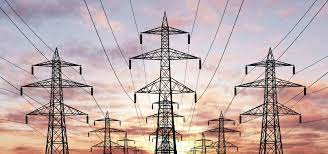
The Regional Electricity Interconnection Project called “North Backbone Project” which involves Nigeria, Niger, Burkina Faso, Benin and Togo was launched this week in Gorou Banda, a community located about ten Km from Niamey, by President of Niger Mohamed Bazoum, and his Ghanian counterpart Nana Addo Dankwa Akufo-Addo, Chair of the Authority of Heads of State and Government of the Economic Community of West African States (ECOWAS).
The ECOWAS North Backbone Project, with an overall cost of $568.2 million, aims at setting up a 330kW interconnection line to supply electricity to Niger, Burkina Faso, Benin and Togo from Nigeria.
The project is funded by the World Bank, the African Development Bank, the French Development Agency, and the European Union. The construction work of the electricity interconnection project will be completed in 2024.
In a speech, Niger’s Minister for Petroleum, Energy and Renewable Energy, Mahamane Sani Issoufou Mahamadou, expressed satisfaction at the selection of Niger to launch the North Backbone Regional Electricity Interconnection Project through the West African Power Pool (WAPP).
The Minister described the North Backbone project as a far-reaching regional project that will have a positive impact on the communities by facilitating electricity trade in the sub-region and extending access to electricity to the communities along the transmission line, i.e. 611 communities, including 179 in Burkina Faso and 432 in Niger.
President of ECOWAS Commission for Mines and Energy Sédiko Douka said the project shows that ECOWAS is also concerned about physical infrastructure (transport, energy, telecommunications, water), in addition to agriculture and food security, single currency, the common external tariff, free movement of goods and services and the right of establishment, among others.
Commissioner Sédiko Douka also stated that the construction of the line, which will be completed in 18 months, has taken into consideration all environmental and social aspects, including compensation, resettlement, institutional aspects, and capacity building, in strict compliance with international standards.
This flagship project complements two other similar projects in West Africa, namely OMVG (Senegal, The Gambia, Guinea, Guinea Bissau) with the construction of nearly 1,700 km line and the CLSG (Cote d’Ivoire, Liberia, Sierra Leone, and Guinea) with 1,300 km interconnection lines, each of which has a rural electrification component.
The completion of these three projects will result in the interconnection of all 14 countries of the ECOWAS region, a favorable situation for the effective implementation of the regional electricity market launched in 2018 by the West African regional organization.
